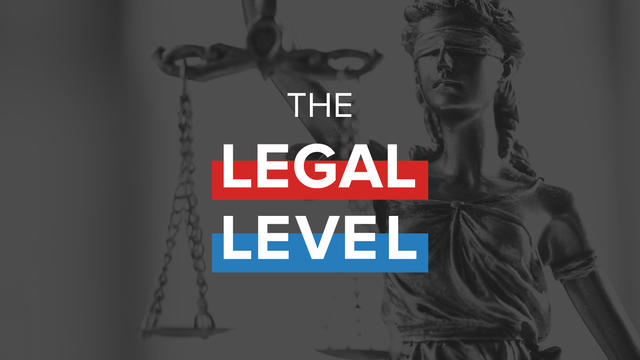So, your college dreams of crushing a two-story beer bong four nights out of the week trumped your dreams of making the dean's list. For fun-loving coeds who harbor graduate school aspirations, these low undergraduate GPAs could be especially damning come application time. This rings even more true for law school, as most law school admissions boards will want to see a high college GPA alongside high LSAT scores on your application.
Applying to law school with a low GPA becomes even more pressing if you'll need financial aid to attend. Most scholarships go to the top applicants, or applicants whose GPAs and LSAT scores raise the school's median. This is because higher medians translate to higher U.S. News law school rankings, which is something every law school is always aiming for.
What's a law school applicant with a low undergraduate GPA to do? The good news is there are a number of ways you can redeem yourself and still build an outstanding application—even with a relatively low college GPA.
1) Ace the LSAT
As we mentioned briefly above, your college GPA and LSAT scores will have the most impact on whether or not you get admitted. So those whose GPAs are a bit lower will more than likely have to smash the LSAT to balance it out a bit. By smash, we mean get scores in the high 160s to 170s range, as most law schools won't accept scores lower than 155.
Fortunately, there are a number of LSAT prep courses to help you achieve this, including Test Max Prep! Working with an experienced tutor can also help you significantly boost your scores, so consider investing in one if you're serious about getting the highest score possible.
Don't worry about trying to ace the LSAT on the first pass, either; law schools no longer care as much as they once did about multiple retakes. In the end, only your highest score matters, so having a record of lower scores shouldn't work against you. Impatient applicants may balk at the idea of waiting another year to retake the LSAT, but this could actually be more beneficial than not. You could make the most of this gap year by working while studying for your LSAT retake, as law schools like to see a bit of work experience on an applicant's resume. We'll explore this more in depth later.
2) Get Great References
As much as our supposedly meritocratic society would like to argue otherwise, ultimately it's who you know and not what you know that'll dictate a large portion of your success. This certainly rings true when applying to any kind of graduate school, and law school is no exception.
If you happen to be close with a well-known or well-connected professor from your college days, reach out to them and see if they're willing to write you a letter of recommendation for your law school applications. These references will be able to give admissions boards a better idea of who you truly are, and not just the type of student you are as reflected by your GPA.
3) Take a Gap Year or Two
Did you know that applying to law school straight out of college with a low GPA will work against you more than if you wait a year or two and gain some work experience? The reason for this is that law schools love seeing applicants who have an interesting life path, especially if it's one that's helped the applicant gain a unique perspective on life.
For those who came out of college with a low GPA, this perspective can work in their favor; with a year or two of work and life experience, they can demonstrate to admissions boards the expanded skill set and newfound maturity that would serve them better as a law student now as opposed to when they were fresh out of college.
If you do decide to go the gap year route, strongly consider taking a job in the legal industry. We recommend a paralegal or legal assistant position, as both will give you a taste for what working in the legal industry is actually like. What's more, you'll also develop some of the skills you'll need as a lawyer later on, which will definitely give you a leg up, come application time.
You'll work closely with established attorneys as a paralegal or legal assistant, and they could also serve as great references for your law school applications. If you had a low GPA in college, these strong references will only boost your chances of getting into law school.
4) Explain Your Circumstances
Perhaps your college grades suffered for reasons that weren't so fun, such as financial hardship or a family crisis, like the illness or death of a loved one. In that case, you can absolutely advocate for yourself in a written addendum—the admissions board members are human, after all. This kind of context is crucial and could easily help your case, especially if the reasons for your low GPA were more personal than party-related.
However, it's probably not the wisest decision to explain to admissions readers the reasons for your low GPA if they were indeed because of a poor work ethic. The only instance this may work in your favor is if you decide to apply after taking a gap year or two, during which you grow up a bit. If you can show law schools that something positive in you changed between college and application time, then this growth and perspective can actually help your odds of getting accepted.
5) Set Your Sights a Little Lower
So, Harvard is out of the question; not to worry, as there are still plenty of great law schools that accept relatively lower GPAs and LSAT scores. If you're simply trying to get in anywhere, then make sure your scores are well within or above the 50th to 75th percentile of other incoming students' scores. If you can do this in tandem with some of the other strategies we mentioned here, like smashing the LSAT and securing some killer references, then your chances of getting into a decent law school will be pretty good—low college GPA notwithstanding.
For students seeking financial aid for law school, applying to lower-tier law schools increases your chances of getting scholarship offers. This is because lower-tier law schools have lower median GPAs and LSAT scores, so if you apply to these schools with a relatively high LSAT score, you may be offered a scholarship. Law schools will do anything to attract students with high scores that'll raise their median, and many of them do this by offering high-score applicants the scholarship money to go there.
6) Apply to as Many Law Schools as Possible
This seems pretty self-explanatory, from a numbers perspective; obviously, the more schools you apply to, the better chance you'll have of getting into at least a couple of them. While it's still fine to shoot for the stars and apply to your top-pick law school, we recommend skipping premium picks like Ivy League schools, as they most likely won't accept anyone without a sterling application.
The average number of law schools people apply to is somewhere around a dozen: five reaches, five mid-range schools, and two safety schools. If you're worried about your chances of getting accepted, you could adjust this ratio or number, such as applying to five safety schools instead of two. Also keep in mind that the average law school application costs $90 to $130, including the $28 Credential Assembly Service (CAS) report fee (i.e., the fee to send your LSAT scores to law schools), so make sure you have the cash saved up for that.

A Final Word for the Fretful Applicant
Don't let your low college GPA get you down too much—there are clearly a few solid plans of action for balancing it out on your law school applications. Our best advice is to find a way to use as many of the above strategies as possible, as they'll all work together to increase your chances of getting accepted. Best of luck on your endeavors, and we hope that our advice helps put you on the path to getting your J.D.










